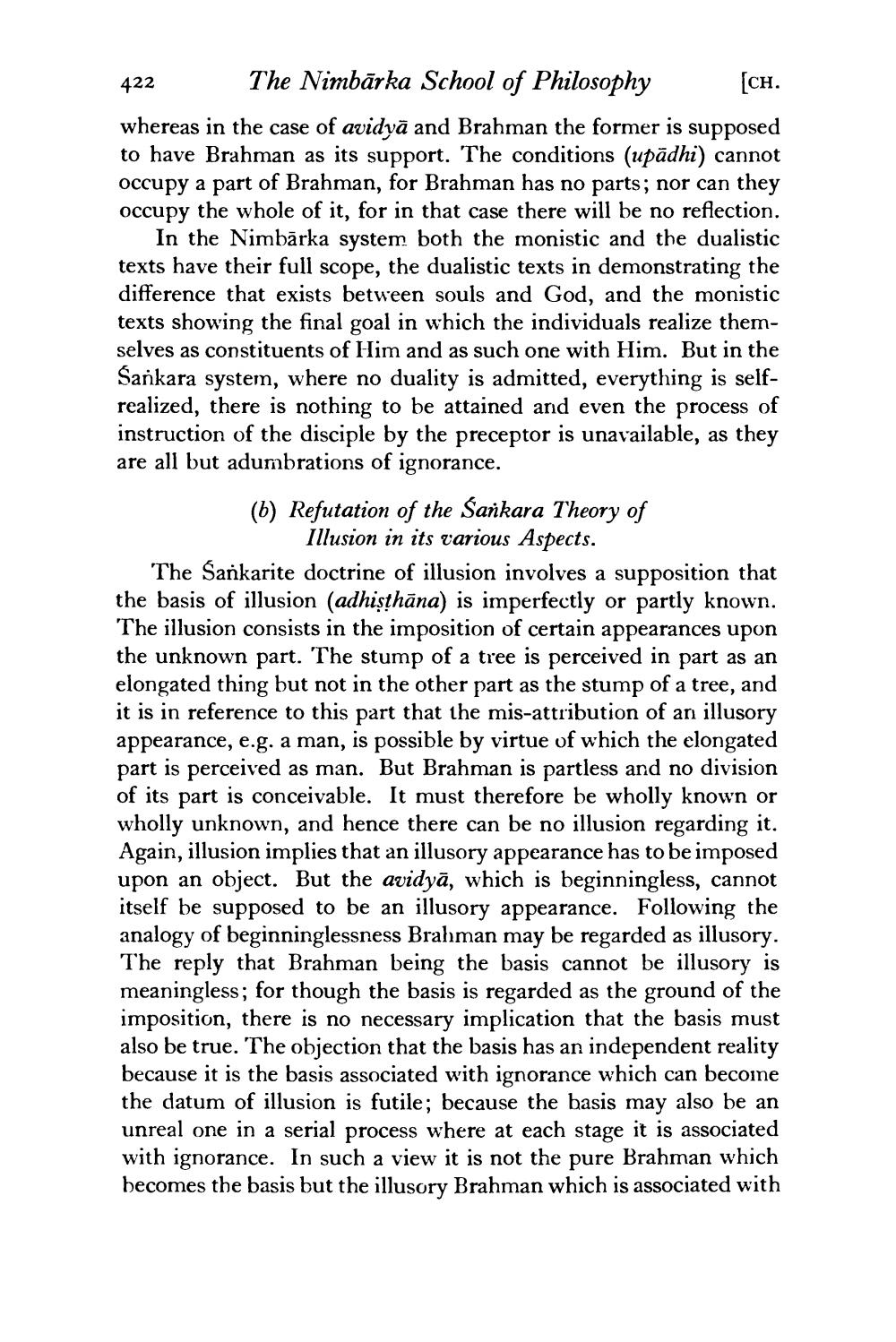________________
422 The Nimbārka School of Philosophy (CH. whereas in the case of avidyā and Brahman the former is supposed to have Brahman as its support. The conditions (upādhi) cannot occupy a part of Brahman, for Brahman has no parts; nor can they occupy the whole of it, for in that case there will be no reflection.
In the Nimbārka system both the monistic and the dualistic texts have their full scope, the dualistic texts in demonstrating the difference that exists between souls and God, and the monistic texts showing the final goal in which the individuals realize themselves as constituents of Him and as such one with Him. But in the Sankara system, where no duality is admitted, everything is se realized, there is nothing to be attained and even the process of instruction of the disciple by the preceptor is unavailable, as they are all but adumbrations of ignorance.
(b) Refutation of the Sankara Theory of
Illusion in its various Aspects. The Sankarite doctrine of illusion involves a supposition that the basis of illusion (adhisthāna) is imperfectly or partly known. The illusion consists in the imposition of certain appearances upon the unknown part. The stump of a tree is perceived in part as an elongated thing but not in the other part as the stump of a tree, and it is in reference to this part that the mis-attribution of an illusory appearance, e.g. a man, is possible by virtue of which the elongated part is perceived as man. But Brahman is partless and no division of its part is conceivable. It must therefore be wholly known or wholly unknown, and hence there can be no illusion regarding it. Again, illusion implies that an illusory appearance has to be imposed upon an object. But the avidyā, which is beginningless, cannot itself be supposed to be an illusory appearance. Following the analogy of beginninglessness Brahman may be regarded as illusory. The reply that Brahman being the basis cannot be illusory is meaningless; for though the basis is regarded as the ground of the imposition, there is no necessary implication that the basis must also be true. The objection that the basis has an independent reality because it is the basis associated with ignorance which can become the datum of illusion is futile; because the basis may also be an unreal one in a serial process where at each stage it is associated with ignorance. In such a view it is not the pure Brahman which becomes the basis but the illusory Brahman which is associated with




